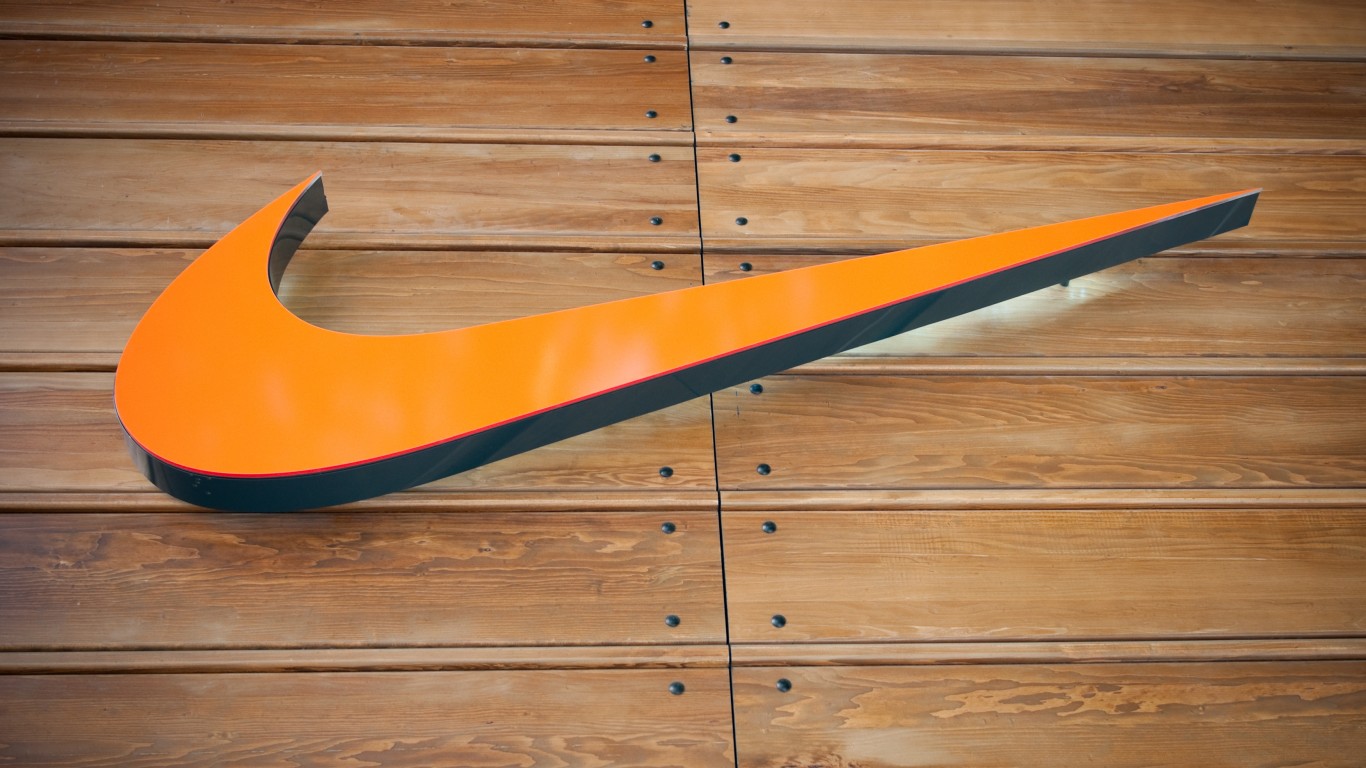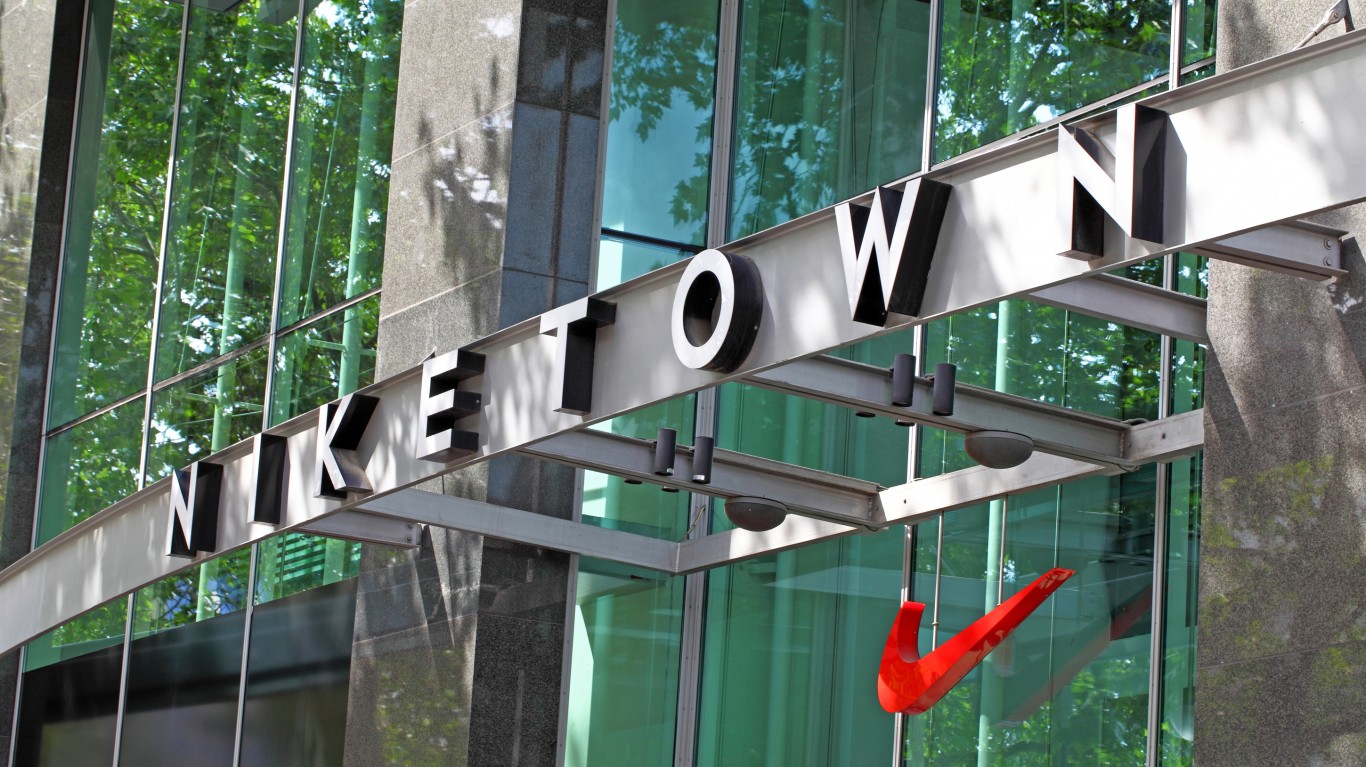
There is much investors can glean by examining how company insiders handle positions in their own companies. While these insiders may part with shares for a variety of reasons (like buying a house, paying for college, or preparing for retirement), they generally buy for only one reason: they expect to make more money.
The chief executive officer often is among the largest and best-informed shareholders in any corporation. Let’s see whether Nike Inc. (NYSE: NKE) CEO John J. Donahoe II has been increasing or decreasing his shares over the past year and whether he might know something we don’t.
What You Need to Know About Nike

Nike designs, develops, markets, and sells athletic footwear, apparel, equipment, accessories, and services worldwide. The company provides athletic and casual footwear, apparel, and accessories under the Jumpman trademark, as well as casual sneakers, apparel, and accessories under the Converse, Chuck Taylor, All Star, One Star, Star Chevron, and Jack Purcell trademarks.
Nike also sells a line of performance equipment and accessories, comprising bags, sport balls, socks, eyewear, timepieces, digital devices, bats, gloves, protective equipment, and other equipment for sports activities under the Nike brand, as well as various plastic products to other manufacturers. In addition, the company markets apparel with licensed college and professional team and league logos. It sells sports apparel and licenses unaffiliated parties to manufacture and sell apparel, digital devices, and applications and other equipment for sports activities under Nike-owned trademarks.
The company sells its products to footwear stores; sporting goods stores; athletic specialty stores; department stores; skate, tennis, and golf shops; and other retail accounts through Nike-owned retail stores, digital platforms, independent distributors, licensees, and sales representatives.
The company was founded in 1964 and is headquartered in Beaverton, Oregon. Nearby Portland is the home of Precision Castparts and Radius Recycling Inc. (NASDAQ: RDUS). Nike’s competitors include Adidas, Lululemon Athletica Inc. (NASDAQ: LULU), and Under Armour Inc. (NYSE: UAA). Donahoe has been Nike’s chief executive and president since January 2020 and has served on the board of directors since 2014.
The company reported annual revenue of more than $51.5 billion, and its market capitalization is about $156.5 billion. The share price is about 17% lower than it was a year ago, and the stock is down about 5% year to date. The S&P 500 has seen a gain of nearly 5% since the start of the year.
How Nike’s CEO Is Trading

One year ago, Donahoe owned more than 203,400 shares, worth around $16.9 million. On last look, he owned almost 164,000 shares. Despite reducing the stake by almost 39,500 shares, its value shrunk by only a little over 1% to about $16.7 million.
| Shares a Year Ago | Shares Today | % Change |
| 203,438 | 163,966 | −19.4% |
Nike is one of the most recognized and valuable brands in the world. Yet, revenue growth has slowed in the face of competitive pressures and lingering supply chain issues. What are the company’s prospects going forward? As mentioned, CEOs and other insiders may sell shares for many reasons. It may not be a sign of uncertainty or a lack of faith in the company or its stock. Analysts on average recommend buying shares, and they see some room for shares to run, given the consensus price target that is more than 18% higher than the current share price. Plus, the dividend has been growing since 2016.
Other shareholders to watch include Philip Knight, a co-founder and former CEO and board chair, and his son Travis A. Knight, as they each have a stake larger than Donahoe’s. Philip’s 17.4% stake is worth over $26.8 billion, while Travis’s 3% or so stake is worth more than $4.8 billion. And note that Executive Chair Mark Parker just parted with over $17 million worth of shares.
Are You Ahead, or Behind on Retirement?
If you’re one of the over 4 Million Americans set to retire this year, you may want to pay attention. Many people have worked their whole lives preparing to retire without ever knowing the answer to the most important question: am I ahead, or behind on my goals?
Don’t make the same mistake. It’s an easy question to answer. A quick conversation with a financial advisor can help you unpack your savings, spending, and goals for your money. With Zoe Financial’s free matching tool, you can connect with trusted financial advisors in minutes.
Why wait? Click here to get started today!
Thank you for reading! Have some feedback for us?
Contact the 24/7 Wall St. editorial team.





